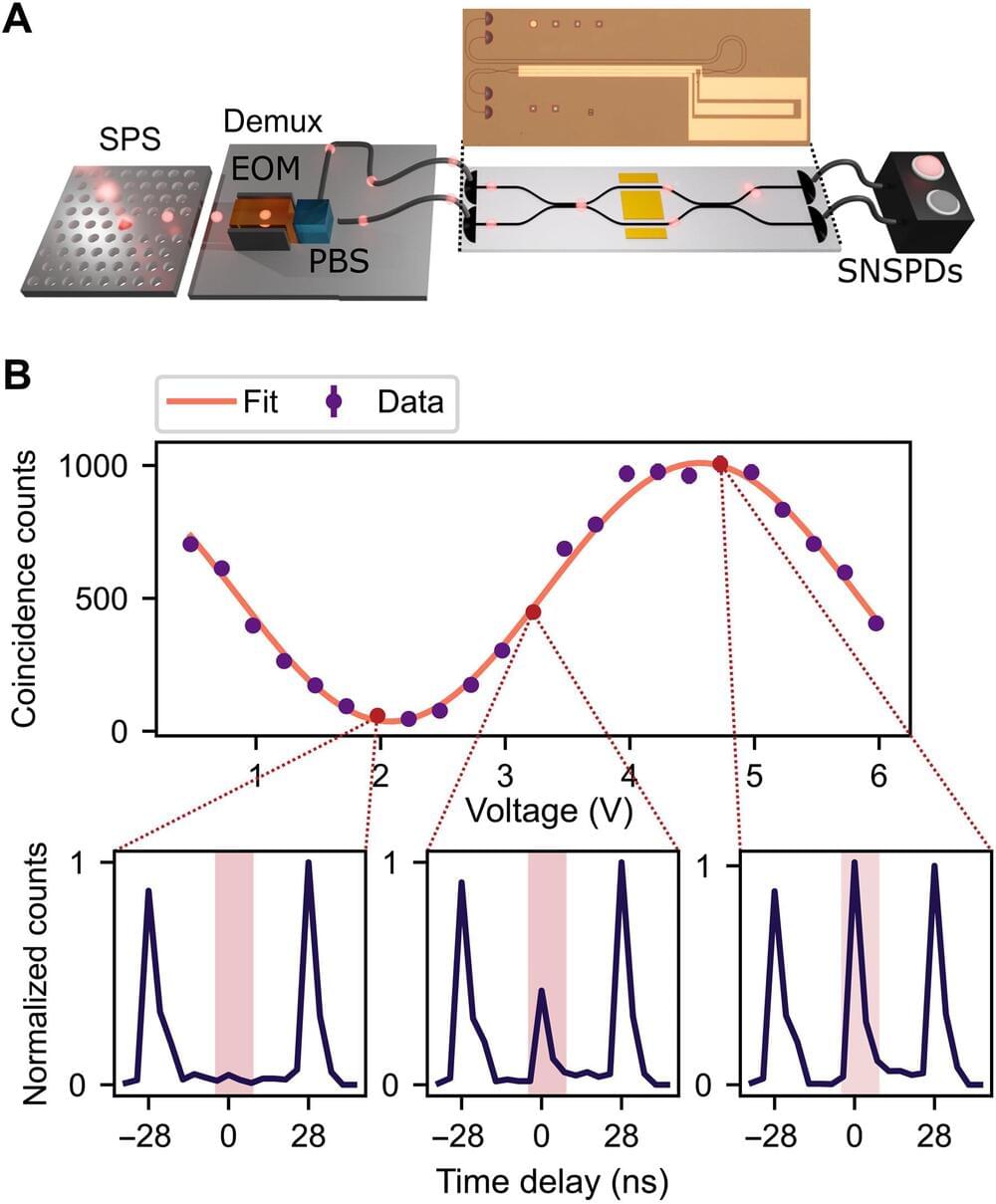Scalable photonic quantum computing architectures require photonic processing devices. Such platforms rely on low-loss, high-speed, reconfigurable circuits and near-deterministic resource state generators. In a new report now published in Science Advances, Patrik Sund and a research team at the center of hybrid quantum networks at the University of Copenhagen, and the University of Münster developed an integrated photonic platform with thin-film lithium niobate. The scientists integrated the platform with deterministic solid-state single photon sources using quantum dots in nanophotonic waveguides.
They processed the generated photons within low-loss circuits at speeds of several gigahertz and experimentally realized a variety of key photonic quantum information processing functionalities on high-speed circuits; with inherent key features to develop a four-mode universal photonic circuit. The results illustrate a promising direction in the development of scalable quantum technologies by merging integrated photonics with solid-state deterministic photon sources.
Quantum technologies have progressively advanced in the past several years to enable quantum hardware to compete with and surpass the capabilities of classical supercomputers. However, it is challenging to regulate quantum systems at scale for a variety of practical applications and also to form fault-tolerant quantum technologies.










Comments are closed.